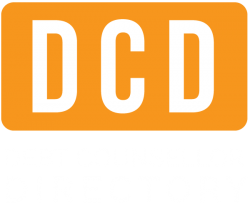Reduced Interest Rates
Applying for debt review with a debt counsellor has quite a few benefits. One of those benefits are the reduced interest rates negotiated by the debt counsellor.
The National Credit Act stipulates what sort of interest rates can be charged by a credit provider. When a consumer applies for credit with a credit provider, the credit provider must disclose certain elements that form part of the monthly installment. Such elements are initiation fees, service fees, credit cover and also the interest rate applicable to the credit being granted.
Depending on a consumer’s credit score a credit provider will determine what interest will be charged on the account. Should a consumer have a risky low credit score the credit provider will typically implement a higher interest rate. In the case where a consumer has a high credit score the applicable interest rate will typically be lower.
Higher interest rates could result in a consumer running into a financial tight spot. It might require the consumer to apply with a debt counsellor who can negotiate reduced interest rates. When a debt counsellor negotiated with a consumer’s credit providers, the debt counsellor will attempt to reduce installments and also reduce interest rates.
Reduced installments are achieved by extending the term over which a debt is repaid and also reducing the interest rate. Reduced interest rates mean that more funds are applied to the outstanding capital balance.
In South Africa, when a payment is made on a debt, the payment is applied to interest first, then fees and only then will whatever is left of the installment be applied to reduce the capital balance. When the interest rate is lower, the same installment will reduce the debt quicker, and ultimately settle the outstanding balance.
The National Credit Act prescribes a maximum interest rate that can be charged on credit being granted. This prescribed maximum differs from credit type to credit type. As an example, a short-term loan has a specific maximum interest rate which is quite high. A long-term loan will typically attract a lower interest rate. Examples of a long-term loan will be a home loan or vehicle financing which usually has a much lower interest rate compared to a personal loan paid over 6 months.
Interest rates are where credit providers typically make their money. It is important to remember that the interest paid on the money that a consumer borrows is the price the credit provider charges a consumer.
Lower interest rates can be extremely beneficial when a consumer has a home loan. Because home loans are typically large amounts, the interest added on a monthly basis adds up to quite a lot of money. Reduced interest rates in such case can save a consumer thousands of Rands on a monthly basis.
A consumer can also approach a credit provider directly and ask for a reduced interest rate. Usually the credit providers are not keen on obliging the consumer in this regard. In certain cases where the consumer has a proven track record of timely payments, and the consumer’s credit profile has improved, a credit provider might consider applying a reduced interest rate.
When faced with a stretched budget, and impaired credit profile, a consumer can apply with a debt counsellor. A debt counsellor will be able to get reduced interest rates implemented as soon as the consumer’s next pay day. Making use of a debt counsellor will not only reduce interest rates, but will also bring about reduced installments and give a consumer legal protection as envisioned in the National Credit Act.
